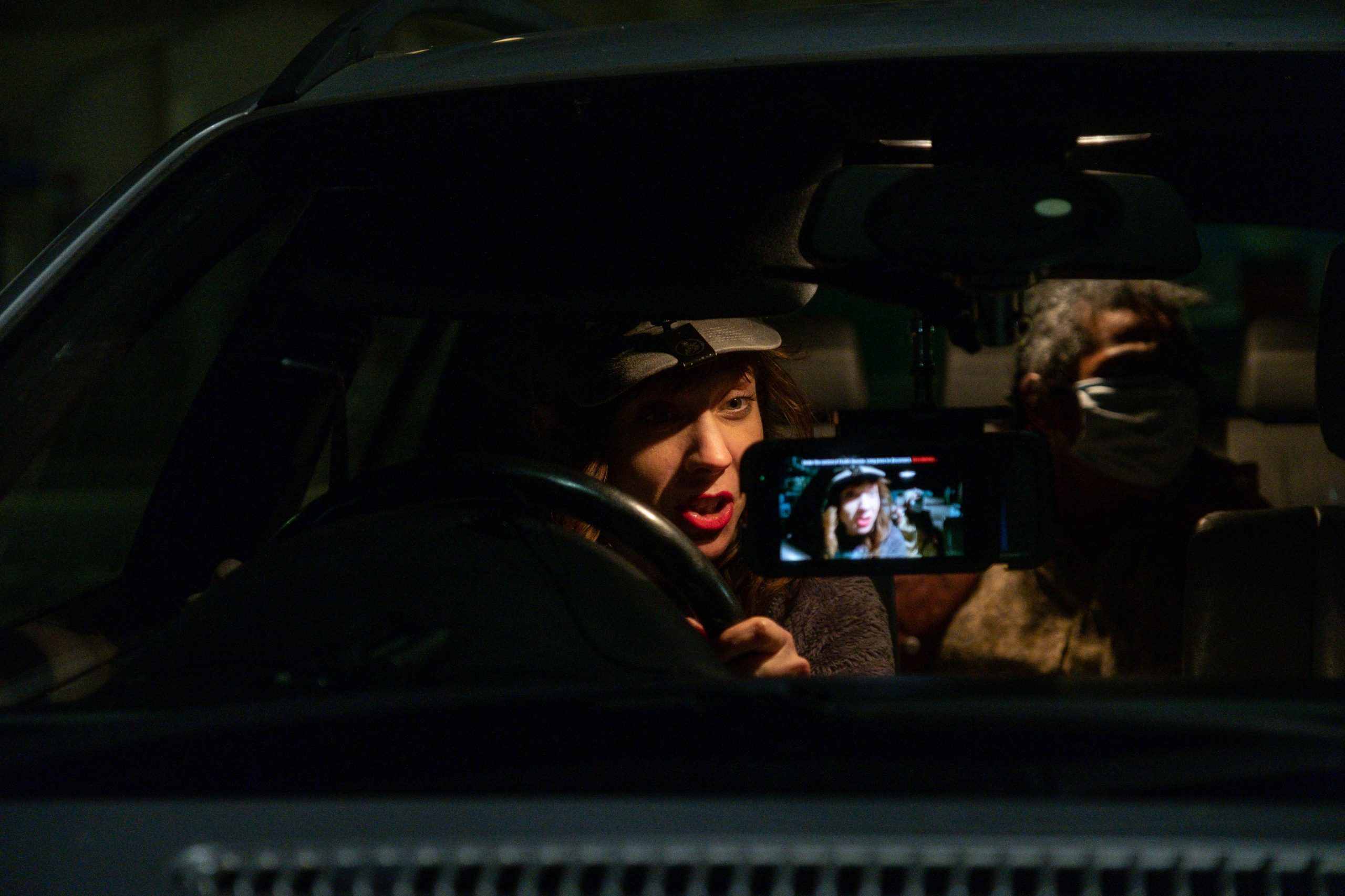
Writers Jed Shepherd and Gemma Hurley talk us through their insane, completely unique and provocative new horror film Dashcam.
“What can we get away with?”
As told to me by writer Gemma Hurley, this seems to be the central question behind the production of Dashcam. From the team that scared the living shit out of us with Zoom shocker Host, comes now an even more insane take on the horror genre.
“Let’s just make the most batshit film we possibly could,” continues Hurley.
I’m chatting to writers Jed Shepherd and Hurley about a week before the film is about to come out in UK cinemas. There’s already been plenty of controversy and buzz; Dashcam premiered at the 2021 Toronto International Film Festival and immediately turned out to be a divisive film, mostly thanks to the main character Annie Hardy. Hardy plays an exaggerated version of herself in the film and even the word extreme seems too tame to describe the Annie of the film, who is a COVID-denier and adamantly against masks and vaccines.
“This is a film, this is not real. So what you see from Annie in here is definitely not how she would act” says Shepherd. He also insists that Hardy, who sports the famous MAGA hat in the film, did not vote for Trump.
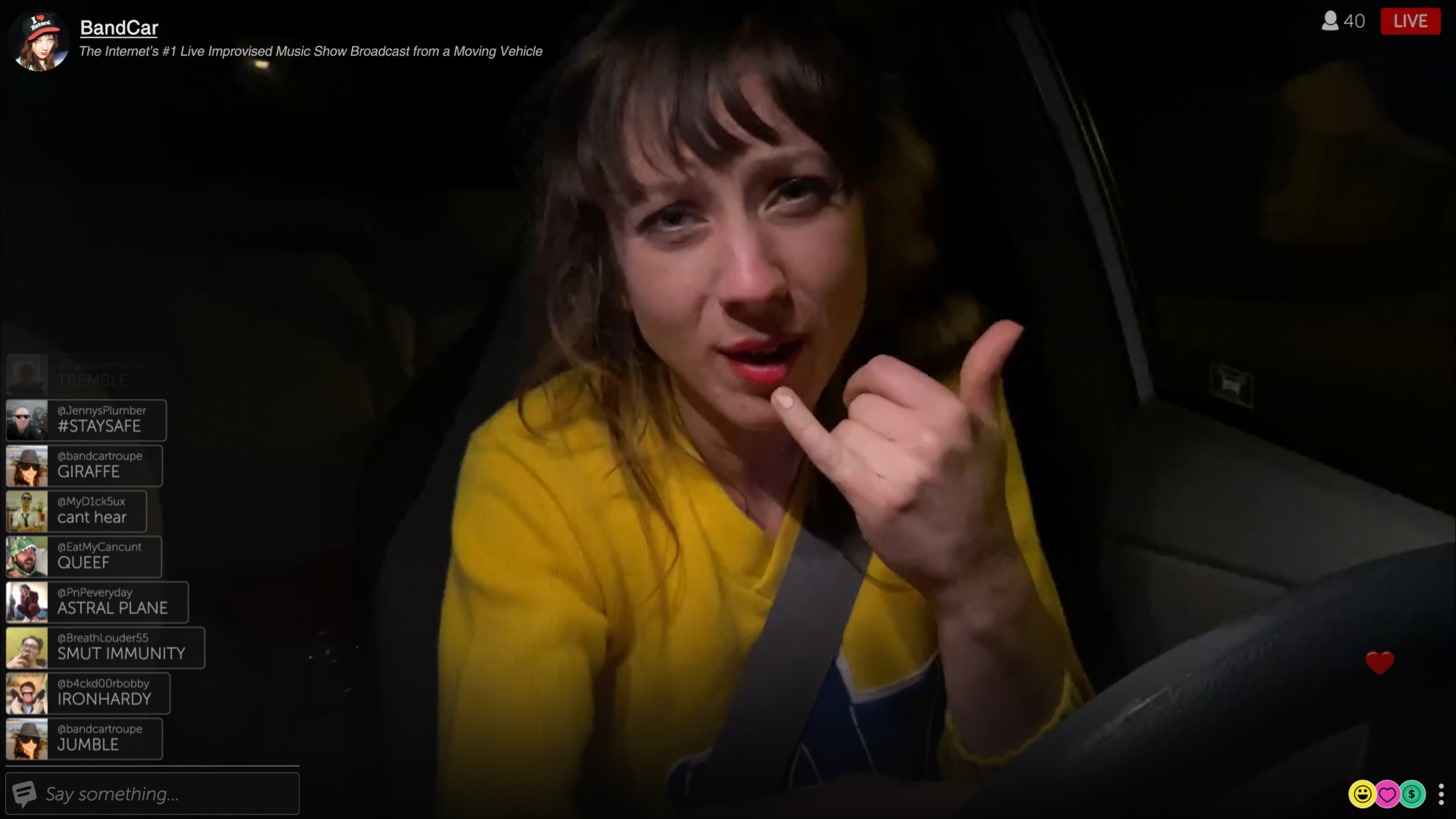
“When we were writing it, we wanted to make something that is actually crazy for big audiences. You’re gonna love it or you’re gonna hate it, but you’re going to come out of it going what that effing hell did I just see” Hurley comments and compares Dashcam to Evil Dead, referencing both films’ silly, absurd tone and unbelievable plot twists.
Shepherd notes that Hardy has always been outspoken and in the limelight since the 2000s so she was used to the attention and backlash surrounding Dashcam.
Surprisingly, Dashcam was conceived before the lockdown hit horror Host. Host saw director Rob Savage sign a deal with horror mega studio Blumhouse for three films. Dashcam is the first of these three and reunites the creative team from Host, who clearly aren’t done with scaring audiences all around the world.
“We’ve just got a bunch of fucked-up heads!” Hurley says of their creative team.
Shepherd tells us they pitched Dashcam to a bunch of studios pre-Host, but everyone thought the film was a little too crazy. But everything started with Hardy, whom Shepherd has known for a long time.
“For the last 10 years, she’s been doing a real show called Band Car where she raps to people everyday in her car. And when I was out there for Sundance one year, I just said to her, wouldn’t it be really good if there was a horror film based around this?”
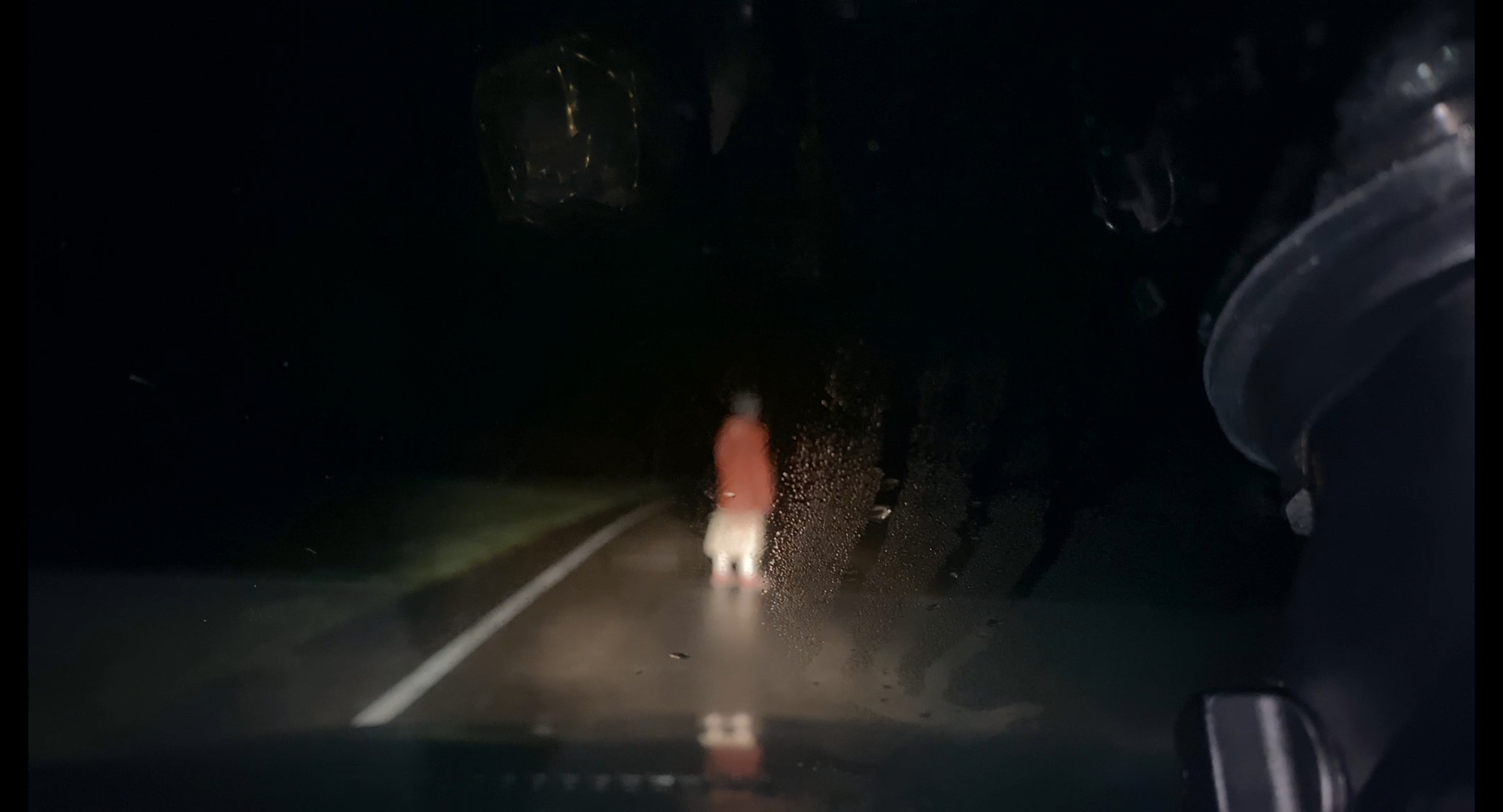
Dashcam does include Annie’s unique live show, but goes even further and puts her through a wringer and leaves her out to dry. It’s an usual place to be put as a viewer, feeling the need to root for a protagonist but also, low-key, hating her guts.
“What’s interesting to me, is the fact that if it was a guy, no one would be saying anything. If you think of Walter White in Breaking Bad, or any other horror film, when it’s a male protagonist, and he’s awful, the audience will stick with him till the end” Shepherd muses and we’d have to agree, hard.
“We need things that challenge us. And that’s the beauty of horror, you can do that in this particular genre. If a horror film is comfortable, you’re not doing horror right. You need to be horrified at what you see, because it needs to make you question yourself as well. And I think that’s what Annie does in Dashcam.”
Hurley also speaks of the types of women who have been allowed to be the heroes in horror films. Traditionally, the final girl is a virginal, sexually unavailable goody-two-shoes. Female characters who engage in sex or drugs, are punished, viciously. Hurley notes that in a more traditional film, Annie would be the antagonist.
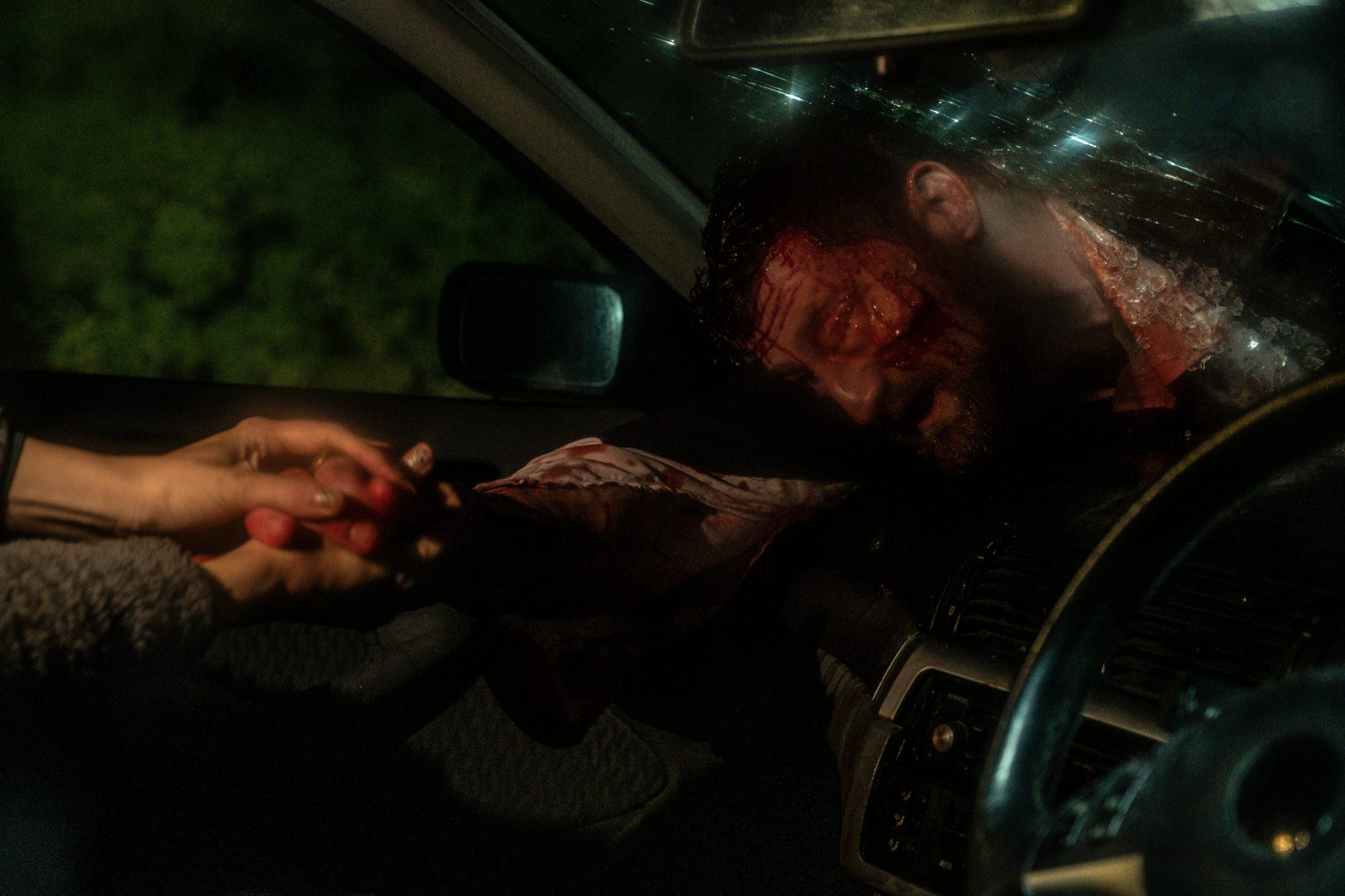
“What happens if you put that person, who usually makes me uncomfortable in the corner of the story, in the centre? What does that do to audiences? I think everyone goes into seeing a film about someone like Annie with their own judgements and it’s forcing you to look at yourself and question those ideas, which was definitely a challenge to write” she says.
Both Host and Dashcam take place during the COVID-19 pandemic and the team has managed to craft a nice little niche for themselves.
“Host was set at a time during lockdown when everyone was separated and Dashcam is set in this uneasy time when the world is opening up and people are coming back together. But are we safe?” Hurley notes and Shepherd concurs.
“We draw on actual things that we’re afraid of. And it could just be the fear of the dark, or it could be a fear of talking to people. Especially during lockdown. I think it manifested a lot of fears that people previously didn’t know about. And that’s kind of what we projected in Dashcam. These fears of going back outside and what’s out there.”
Shepherd also notes that he thinks the fear of the unknown is the biggest fear there is. And speaking of the fear of the unknown, when asked if the success of Host brought on any pressure, both shake their heads.
“I think it was too fast a turnaround to even think about the pressure” Shepherd comments. It seems that the entire creative team, which also includes producer Douglas Cox and editor Brenna Ragott, just get each other and work well together. So it’s surprising to hear that Shepherd considers his approach to horror to be very different from Savage’s.
“Rob is always very arthouse and stylistic. And I’m more bang, bang, bang, crowd pleasing.”
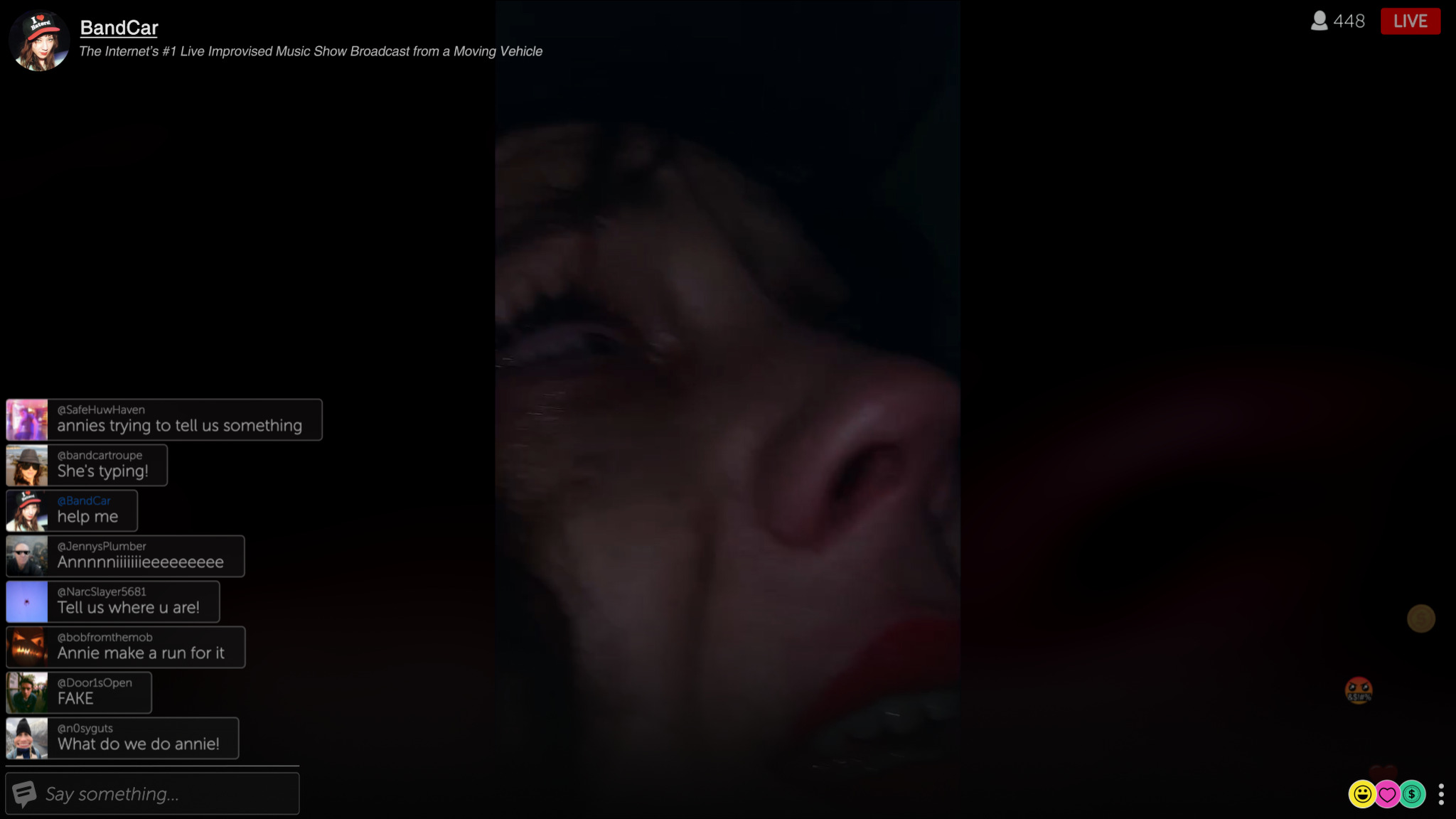
We end the chat by discussing what great horror they have been watching lately. Shepherd says he saw a never-released found-footage film called People Watching at a festival that’s just “90 minutes of a guy with a camcorder pointing outside his window to the street.” Hurley, however, has been watching something a bit more classic.
“The Haunting. The original I saw very recently for the first time I was like holy shit, wallpaper is terrifying.”
Maybe their next film will be about wallpaper!
Dashcam is in UK cinemas June 3.



